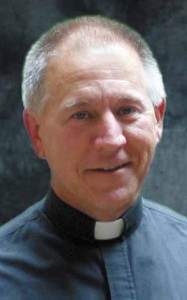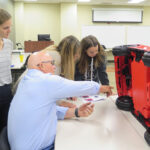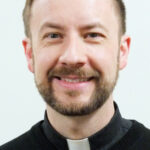By Fr. Bud Grant
By the time you see this, Pope Francis’ environmental encyclical has been released. Judging from the vituperative “pre-buttals” — the attacks made on the pope’s position weeks before anyone read it — you are probably also hearing about how the pope is “more Marx than Moses,” an “ideologue and meddlesome egoist” guilty of “apocalyptic alarmism,” and, my personal pick for most vitriolic, that “Francis sullies his office by using demagogic formulations to bully the populace into reflexive climate action with no more substantive guide than theologized propaganda” (Maureen Mullarkey, New York Times, 4.28.15).

Why this outrage, even “pre-rage?” There is a current of tea party passion (I mean that of Boston in 1773) that runs deep in the American psyche that mistrusts aloof and imperialist government. Is climate change action seen as a global big brother seeking to deprive us of our civil rights? To be frank, this seems a concern unhinged from fact, especially given that, according to Gallup, three-quarters of Americans are OK with the so-called “Patriot Act.” Besides, the harm of being wrong on climate change is beyond calculation. It is wearisome to repeat the near total consensus in the scientific community that it is real and anthropogenic. I wonder if skeptics entertain doubts about scientific veracity when taking medicine, boarding a plane, or consuming genetically modified foodstuffs. If we trust science-based technology, why refuse scientific judgment on the most critical issue of this — or any preceding — age?
Of 17 (and counting) presidential candidates, five accept anthropogenic climate change, seven deny it and five have gone back and forth. Rick Santorum, a Catholic, recently said that the church is “probably better off leaving science to the scientists and focusing on what we’re really good at, which is theology and morality” (climateprogress.org 6.3.15). The problem with Santorum’s comment is that we can’t do theology and ethics without reference to science. To do so would be to box ourselves into a corner of ignorance and irrelevance. Imagine debating end-of-life issues without understanding medicine or insisting on feeding the poor with no knowledge of agronomy. Proclaiming possession of eternal truth without reference to the fruits of rational inquiry is not the Catholic way.
Pope Francis incidentally, has training in chemistry. Moreover, he represents a church which, contrary to popular belief, has made invaluable contributions to the sciences through the likes of Bacon, Chardin, Copernicus, da Vinci, Descartes, Fermi, Guttenberg, Lamarck, Lavoisier, Albert Magnus, Marconi, Mendel, Ockham, Pascal, Pasteur, and yes, Galileo, (dozens of whom were Jesuits and a few, saints). The point is that the church, when not clouded by fearful defensiveness, mistrust and rigidity, embraces the insights of the natural sciences, and not passively, as in building a firewall between rational inquiry and faith conviction, but for the purposes of deepening both.
Pope Francis, then, has every right and even a moral imperative to speak on the issue of climate change and environmental concerns. It is not just that he is trained to think like a scientist or that he is of a tradition that embraces the sciences. He is primarily and fundamentally a man of faith who believes that nature is intrinsically good, being God’s creation, and that its resources ought to be put at the service of the marginalized and future generations. That he has also been vociferously decrying the damage that we have done to creation insists that anyone who would rather enjoy cozy denial or who is prone to ideological reactionism is on the wrong side of science and the wrong side of our faith. In my way of thinking, this makes him, not a demagogue, zealot, or Marxist, but a prophet. Our Scriptures make it pretty clear what happens when God’s people ignore his prophets and in this case it would be self-inflicted.
(Father Bud Grant is a professor of theology at St. Ambrose University in Davenport.)











